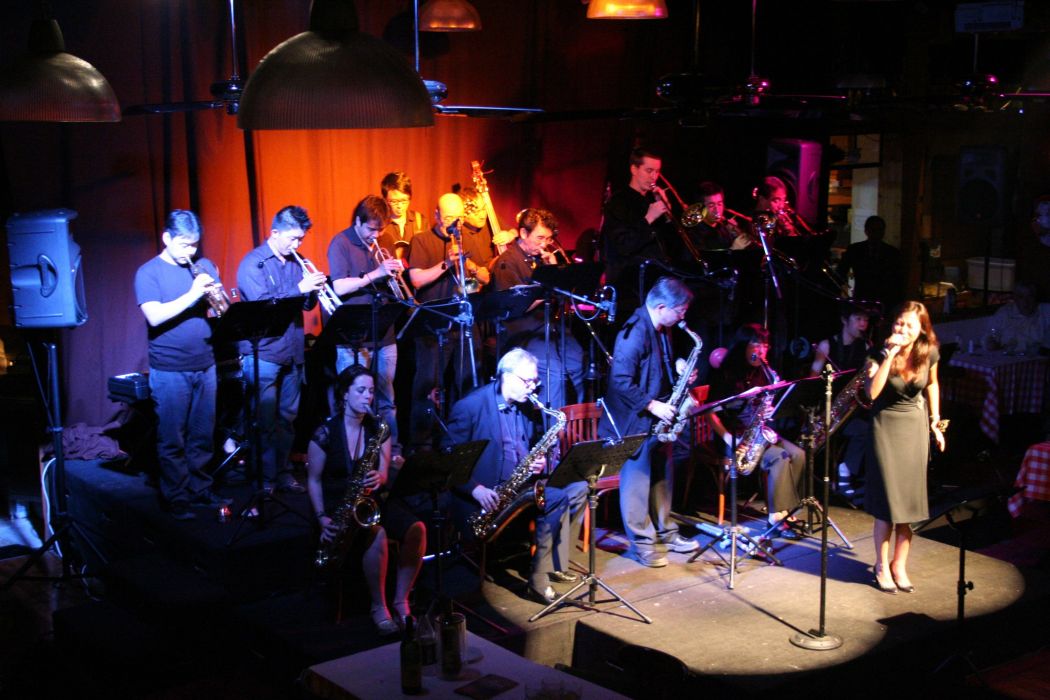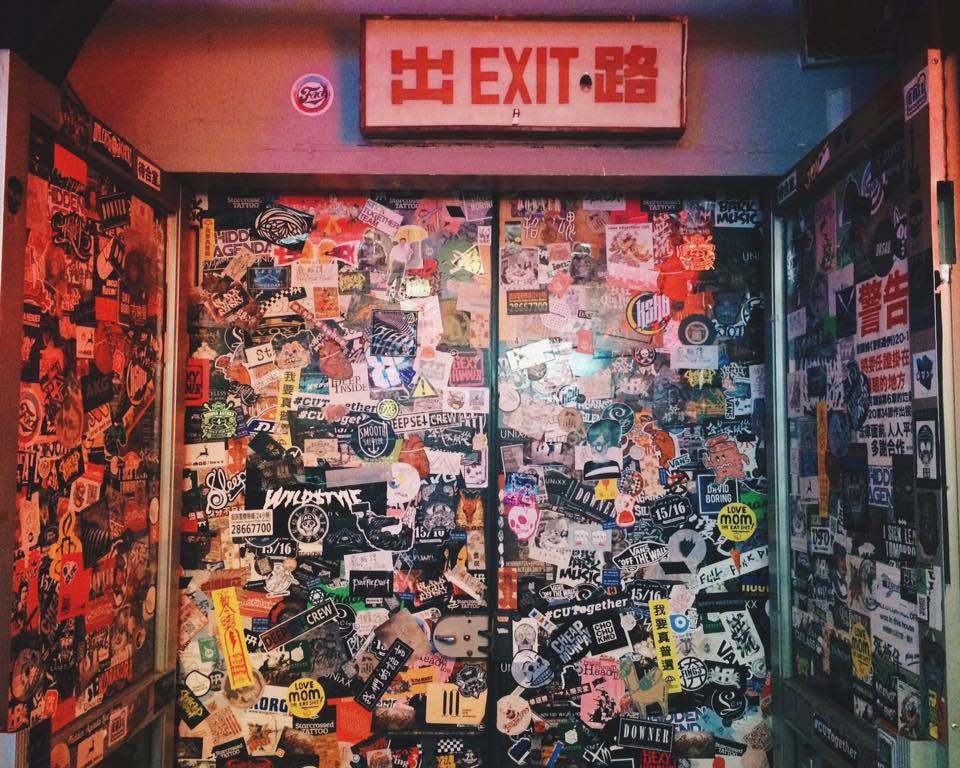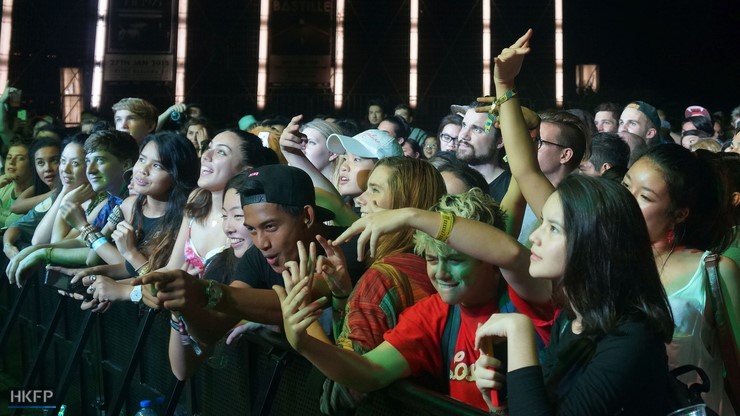The recent news of the refusal of a new lease to Grappa’s Cellar, and Sense 99’s closure, has felt a particularly bruising double-whammy blow, given how beloved each was in its own way to the local music community.
Venue infrastructure issues are of course multi-dimensional. In Hong Kong, given the absence of government-led protection through policy, the onus falls – as ever – on the general public to support a venue’s existence. This represents a challenge, particularly at the grassroots level, though the opportunity for progressive developers to include performance spaces in their broader ‘Placemaking’ initiatives should offer valid, exciting and very real potential.

Venues contribute socially, creatively as well as economically and have a role to play in making the city ultimately more livable.
I personally became acutely aware of how a venue can transcend into something so much more than a simple space as a teenager, through a regular indie club night called Far East Far Out. Held at various venues (all now deceased) including Portico’s, LA Café and the original Ritz Carlton in Central, Far East Far Out exposed me to the kind of merry sorcery that can occur when a seemingly nondescript room is elevated from a mere place to a feeling.
Walking through those Far East Far Out doors was the first time I felt like I’d found somewhere I truly belonged in Hong Kong. There, once a month, the various cultural misfits and collectively like-minded souls from a cross-section of society would gather and revel in shared musical connection.
While music was certainly the catalyst, it was the personal interactions with the people present which made the nights so special.
It’s a feeling I’ve since sought wherever I am. During my university years in Bath I frequented Moles Club so regularly that I was given free lifetime membership. Similarly, in Oxford, The Point (where The Strokes and The White Stripes played their first ever UK shows) became my adopted second home. As was Amnesia, on the corner of Hollywood Road and the escalator, on my return to Hong Kong in the early 2000’s.
What these venues all had in common was irrefutable character and an (often sticky) relaxed, no-frills charm: a magnetic magic which emanated through the walls, born of authentic intimacy and creative intention.
These were safe places where people came together, made friends, became inspired, shared ideas, formed bands, fell in lust and love and quite simply, enjoyed being together. In short, these are the places which give colour to life, and to my mind, make their cities better places to live.

Grappa’s Cellar will always hold a special place in my heart for that very reason. Its location, sight lines and sound properties make it unrivalled locally as a 350-capacity space. The alchemy that occurs in that room when the tables are removed, the lights softened to twilight, the audience engaged and the artist commanding full attention, is extraordinary. Special venues turn good shows into transformative experiences, and Grappa’s Cellar had that in droves.
In 2008, along with some friends (all stalwart fans of the original) we resurrected Far East Far Out there for a new generation of gig goers. Since then, I have had the privilege of being involved in so many memorable nights in that basement of Jardine House: from the silent awe insulating Jose Gonzalez, to the hanging-from-ceilings zestful mania of British Sea Power; the irrepressible groove of Caribou, to the majesty of Andrew Bird and limitless innovation of OK Go to name but five (of far too many to mention).
Throughout them all, the venue played a vital role in our, and others’, efforts to grow the live music scene here and contribute added vibrancy to our hometown.
It is indeed such a fantastic venue, that I always hungered for it to be used more in that capacity. Its multi-purpose nature (hosting events ranging from band shows to swing dance classes to screenings and more) always felt a good fit for catering to a variety of interest groups across the community.
Of course, it’s easy to understand the financial balance Grappa’s needed to strike between their core restaurant business and medium as an arts space. By the same token, it’s not difficult to appreciate the value of the land it sits upon, nor the realities of prime real estate in Hong Kong, and the logic behind the likely broad societal appeal of what might very well end up being a fantastic food court.
To be fair, we just don’t know about those plans yet, or even whether a live music component may or may not already be factored into them.

This is not an issue unique to Hong Kong or just about Grappa’s. Small sized venues are closing, or under increasing threat the world over, typically due to rising rents and/or prohibitive licensing or operating restrictions, which hinder the ability of these venues to survive.
Without these venues, the pipeline to develop new artists is sealed, and this is a major contributing factor as to why the next generation of ‘headline’ level artists has stalled internationally in recent times. In more progressive cities, this issue is identified and sparks active efforts to reverse the trend, including landmark funding announced in the UK last week. When grassroots venues thrive, the whole city benefits.
While we may not have the musical heritage of places like London, Nashville, Melbourne, Berlin or others, it’s still important for Hong Kong to recognise the value of venues in healthy urban ecosystems.
Moreover, where so often the rhetoric and investment in the arts locally can be summed up as ‘culture for culture’s sake’ we are further missing out on the contributing potential gained through a more robust and pragmatic set of policies designed to support and realise strategic economic growth through music.
In fact, given the mounting social and economic challenges in Hong Kong on one hand, and the various cultural freedoms we currently enjoy when compared with several of our regional neighbours on the other – neglecting the benefits of a music economy feels, at the very least, a missed opportunity (and an op-ed for another time).
Back to venues, and in language to which Hong Kong typically relates, venues are more than performance spaces – they are talent incubators and innovation hubs, which support a myriad of secondary and tertiary industries, including: F&B, ticketing, technical production, security, retail, design and more.

They play a critical role in the ecology of not just the music industry but the broader cultural sector, creating jobs and skills, with a positive impact on communities, businesses and economies. When they are gone, they leave a void and a depletion in the scene’s lifeblood which in turn reverberates across the whole value chain.
Crucially and practically, it means there’s nowhere fun to go anymore – and we don’t just lose the physical spaces, but rather a conduit of human connection.
Like so many of my generation, I’ve now mourned many a venue closure. Indeed, I consider myself fortunate enough to have played in bands invited to feature on the final, closing nights of both The Point (Oxford) and Amnesia (Hong Kong). In each case, beyond the inherent sadness of the circumstances, perhaps surprisingly, the occasions themselves turned out to be unbridled, unhinged celebrations.
The celebrations honoured the people, the music and the shared past experiences for which we could all say “We were there” together, and that meant something. No one can take that away, whether the shells they were formed in are still present or not. The feelings remain, and the memories made, never forgotten.
So whilst I certainly lament the loss of Grappa’s Cellar and very much hope the story doesn’t end there, I am equally so very grateful for the role it has already played in our collective histories, and conscious that what happens next in terms of pushing momentum continuously forward for the future, depends on what happens now.
We cannot alter the way the property market works, and I don’t intend this as an exercise in demonising developers. On the contrary, I truly believe they will offer the solution, especially in Hong Kong, and the way forward is to engage with them (and the government) in a collaborative way, so that successful urban planning can be developed and managed systemically – including a coherent music strategy for Hong Kong.

Already, commercial property giants are becoming increasingly aware of the symbiotic benefits of cultural, community and experiential offerings to lifestyle needs, geographical appeal and ultimately land value. Their need to invert the dip in retail-led footfall should further fast track this evolution locally, and I look forward to real action, with a raft of creative solutions readily available as case studies, successfully adopted in other cities.
That may sound too wishful, protracted or naïve to some, but we all have the power to contribute immediately in positive and meaningful ways, simply by going out to more shows, and proving that these spaces and experiences are important.
TTN, The Wanch, Eaton, The Aftermath, Mom Livehouse, Lost Stars and others are more active than ever, as are a slew of new and existing promoters. Supporting small, independent operators working week in and week out by buying tickets and frequenting their bars is the very best way we can all make a real difference – and in that process, look forward to creating ever more cherished memories a new.
Kong Tsung-gan‘s new collection of essays – narrative, journalistic, documentary, analytical, polemical, and philosophical – trace the fast-paced, often bewildering developments in Hong Kong since the 2014 Umbrella Movement. As Long As There Is Resistance, There Is Hope is available exclusively through HKFP with a min. HK$200 donation. Thanks to the kindness of the author, 100 per cent of your payment will go to HKFP’s critical 2019 #PressForFreedom Funding Drive.

